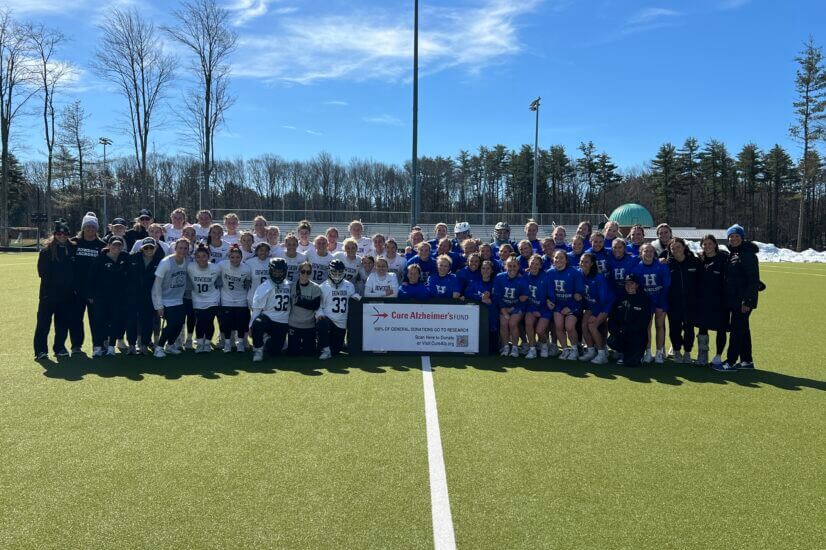
Posted September 25, 2008
The award co-sponsored by the Cure Alzheimer’s Fund and the Alzheimer’s Association honors the legacies of two pioneering Alzheimer researchers, George G. Glenner and Leon J. Thal. The two $100,000 grants will be made to early career researchers to inspire and enable innovative research which leads to effective therapies for Alzheimer’s Disease.
The Alzheimer’s Association and Cure Alzheimer’s Fund award the Tomorrow’s Leader in Alzheimer’s Disease Research award, honoring the legacies of two pioneering Alzheimer researchers – George G. Glenner, M.D., and Leon J. Thal, M.D. The award intends to recognize the work of promising M.D. or Ph.D. Alzheimer’s disease investigators who have made pivotal recent contributions to the goal of eliminating Alzheimer’s.
The award is meant to inspire and enable innovative research that might not otherwise be able to be done by early career investigators and which leads to effective therapies for Alzheimer’s disease. The partners will award $100,000 to two awardees per year based on the quality of the applications.
Glenner (1928–1995), headed the molecular pathology section and chaired the Department of Medicine and Physiology at the Foundation for Advanced Education in the Sciences at the National Institutes of Health from 1958 to 1980. In 1982, he assumed a post as research pathologist at the University of California at San Diego School of Medicine. Two years later, Glenner and his assistant, Cai’ne Wong, announced the isolation and identification of beta-amyloid and its connection with Alzheimer’s. Their watershed research set the cornerstone for the amyloid hypothesis, the leading theoretical framework for understanding Alzheimer’s and the basis of the most promising emerging “disease-modifying” treatments.
Thal (1944–2007), a visionary in conceptualizing and designing Alzheimer clinical studies, led an unparalleled clinical research effort, including some of the trials that established the most important current symptomatic treatments. Since 1994, Thal headed the Alzheimer’s Disease Cooperative Study (ADCS), an 80-site clinical research consortium in the United States and Canada. He also directed the University of California at San Diego’s Shiley-Marcos Alzheimer’s Disease Center, established in 1984 as one of the original five centers funded by the National Institute on Aging. In addition, he chaired UCSD’s Department of Neurosciences.
The Alzheimer’s Association is the leading voluntary health organization in Alzheimer’s care, support and research. Our mission is to eliminate Alzheimer’s disease through the advancement of research, provide and enhance care and support for all affected, and reduce the risk of dementia through the promotion of brain health. Our vision is a world without Alzheimer’s. For more information, visit www.alz.org.
Cure Alzheimer’s Fund™ is a 501c3 public charity whose mission is to fund research with the highest probability of slowing, stopping or reversing Alzheimer’s disease. Cure Alzheimer’s Fund is characterized by a venture approach to philanthropy which targets funding to specific research objectives. All expenses and overhead is paid for by its founders and all contributions go directly to research. The Foundation has no financial or intellectual property interest in the research funded, and will make known the results of all funded research as soon as possible. Cure Alzheimer’s Fund is a national organization with offices in Boston and Pittsburgh. For more information, visit www.curealzfund.org.
The Alzheimer’s Association and Cure Alzheimer’s Fund are committed to recognizing outstanding investigators early in their careers to encourage them to stay in the field and help to accelerate the search for effective therapies for Alzheimer’s disease. Each partner has pledged $100,000 per year for a current total of two awards of $100,000 each year. The partners invite interest from other organizations willing to participate at the $100,000 level to expand this opportunity in the future.
Qualifying Letters Open Receipt Date September 26, 2008
Qualifying Letter Deadline December 1, 2008
Application Deadline January 8, 2009
Review Process February-May 2009
Award Announcement July 2009
To avoid disqualification, investigators are encouraged to carefully consider these eligibility requirements before applying.
The Award Committee reserves the right to accept applications from scientists based on their discretion.
The Tomorrow’s Leader Award Committee and partners do not discriminate on the basis of race, sex, sexual orientation, religion, color, nationality or ethnic origin, age, disability, or status as a Vietnam Era Veteran or disabled veteran, in the selection of the awardees.
The purpose of the Qualifying Letter is to ensure that all applicants are eligible for the competition and meet required criteria. The first step in applying to the Tomorrow’s Leader Award is to submit a Qualifying Letter through the proposalCENTRAL on-line application system at https://proposalcentral.altum.com. The Tomorrow’s Leaders Award selection process uses proposalCENTRAL as a central clearing house for information from award nominees, as do more than 30 other organizations sponsoring grants and awards. Through the proposalCENTRAL website, those submitting Qualifying Letters will find the Tomorrow’s Leaders specific protocol. First time users must
register and fill out a Professional Profile in proposalCENTRAL to begin the application process.
The Qualifying Letter and the completed application must be submitted online by the applicant (LIMITED TO ONE PAGE). Hard copies of the Qualifying Letter will not be accepted. Qualifying Letters will not be accepted after the deadline date. No exceptions will be made.
Qualifying Letter (not to exceed 1 page) must include:
Once the on-line Qualifying Letter is approved, an e-mail notification will be sent granting access to the on-line application at proposalCENTRAL. The online system must be used to submit an application – hardcopies of application will not be accepted.
The applicant must ensure and verify that:
The Application Requirements include:
Once the application deadline has passed, no revisions to the submitted applications are allowed.
All proposals are subject to a two-stage review process carried out with an on-line system. In the first stage, Qualifying Letters are reviewed and rated by three to four peer scientists affiliated with the sponsoring institutions and all awardees from the past year (Tomorrow’s Leader Review Board). Applicants will be notified via email if their Qualifying Letter has been accepted by the Review Committee for application submission once the Qualifying Letter deadline has passed and all letters have been reviewed by the Board.
The second stage includes review of the full application and discussion of the merit of each applicant. This second review is carried out by the Tomorrow’s Leader in Alzheimer’s Disease Award Review Board, which includes science representatives from each of the sponsoring organizations and all of the past year’s awardees.
This program announcement is posted in full-text as a PDF document on the website of the Alzheimer’s Association (www.alz.org/researchers ) and Cure Alzheimer’s Fund (www.curealzfund.org). For additional information, please contact [email protected] .





